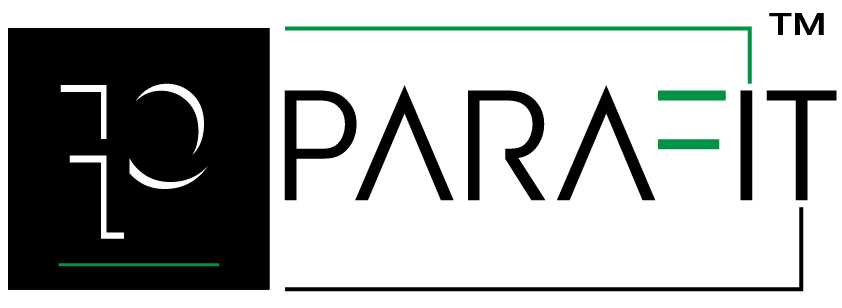
Unlocking the Power of Personalized Diet Plans: Catering to Your Body’s Unique Needs
Are you tired of generic diet plans that barely consider your requirements? It’s time to unlock the potential of personalized diet plans that cater to your body’s unique needs.
With the advancement of nutritional science, tailoring a diet to match your metabolism, genetic makeup, and personal preferences is now a reality.
Imagine a diet plan aligning with your body’s natural tendencies, making reaching your health and fitness goals easier. Moving away from the traditional one-size-fits-all approach, personalized diet plans can optimize your energy levels, enhance your overall well-being, and potentially help in weight management, among other benefits.
This innovative approach revolutionizes your relationship with food and empowers you to make informed choices based on what truly works for your body.
Say goodbye to cookie-cutter diets and embrace a personalized approach that resonates with your unique biology. It’s time to discover how personalized diet plans can transform your health journey.
Understanding personalized diet plans
Personalized diet plans are tailored nutrition strategies considering an individual’s unique biological makeup, lifestyle, and health goals. These plans move away from the traditional one-size-fits-all approach and instead focus on creating a dietary framework that aligns with an individual’s needs.
By leveraging scientific insights into genetics, metabolism, and nutritional requirements, personalized diet plans aim to optimize health outcomes and overall well-being.
The core principle behind personalized diet plans is to recognize that each person’s body is unique, and what works for one individual may not necessarily work for another.
This approach acknowledges the intricate interplay between genetics, lifestyle, and dietary preferences, aiming to provide a more effective and sustainable way to manage nutrition and health.
In essence, personalized diet plans empower individuals to make informed choices about their dietary habits, leveraging a deep understanding of their biological and metabolic characteristics. By embracing this approach, individuals can unlock the power of personalized nutrition, leading to improved health outcomes and enhanced overall well-being.
The science behind personalized nutrition
Personalized nutrition is grounded in the scientific understanding that each individual’s genetic makeup, metabolism, and lifestyle factors are crucial in determining their unique nutritional needs. Advances in genetic research, metabolomics, and nutritional science have shed light on the intricate ways our bodies process and utilize nutrients, paving the way for a more personalized approach to nutrition.
By analyzing an individual’s genetic markers, researchers can understand how their body responds to different nutrients, potential sensitivities, and predispositions to certain health conditions. This personalized genetic information can be leveraged to design dietary recommendations tailored to an individual’s genetic profile, optimizing nutrient intake and minimizing potential adverse effects.
Furthermore, the field of metabolomics explores the unique metabolic pathways and processes within each individual’s body, shedding light on how nutrients are utilized, metabolized, and excreted. This in-depth understanding of metabolic individuality forms the basis for personalized nutrition, allowing for the creation of dietary plans finely tuned to an individual’s metabolic characteristics.
Benefits of personalized diet plans

The shift towards personalized diet plans brings myriad benefits that can significantly impact an individual’s health and well-being. By embracing a personalized approach to nutrition, individuals can unlock the following potential benefits:
1. Optimized Nutrient Intake: Personalized diet plans ensure that individuals consume the right balance of nutrients based on their unique biological makeup, addressing potential deficiencies and optimizing overall nutrient intake.
2. Enhanced Metabolic Health: Tailoring a diet to align with an individual’s metabolic tendencies can lead to improved metabolic health, better blood sugar control, and enhanced energy levels.
3. Improved Weight Management: Personalized diet plans consider an individual’s genetic predispositions and metabolic factors, potentially offering a more effective approach to weight management and body composition goals.
4. Customized Allergen Avoidance: Individuals with specific food sensitivities or allergies can benefit from personalized diet plans that exclude potential allergens, promoting digestive health and overall well-being.
5. Empowerment Through Knowledge: By understanding their unique genetic and metabolic characteristics, individuals can make informed dietary choices, fostering a deeper sense of control and autonomy over their nutritional habits.
6. Long-Term Sustainability: Personalized diet plans aim to create sustainable dietary habits that resonate with an individual’s biological makeup, potentially leading to long-term adherence and improved overall health outcomes.
Embracing diet plans can lead to a paradigm shift in how individuals approach nutrition, empowering them to make choices that align with their biological needs and preferences.
Factors influencing diet plans

Several key factors are pivotal in shaping personalized diet plans and influencing these tailored nutrition strategies’ design, implementation, and outcomes. Understanding these factors is essential for creating effective and impactful personalized diet plans:
1. Genetic Makeup: An individual’s genetic profile forms the foundation for personalized diet plans, providing insights into their unique responses to nutrients, potential sensitivities, and predispositions to certain health conditions.
2. Metabolic Characteristics: Each individual’s metabolic profile, including factors such as metabolic rate, nutrient utilization, and energy expenditure, influences the design of personalized diet plans, aiming to align dietary recommendations with metabolic tendencies.
3. Lifestyle and Dietary Preferences: Personalized diet plans take into account an individual’s lifestyle, dietary habits, and culinary preferences, ensuring that the recommended dietary framework resonates with their day-to-day routines and food choices.
4. Health Goals and Considerations: Tailoring a diet to an individual’s health goals, whether weight management, athletic performance, or specific health conditions, is a crucial consideration in personalized diet planning, aiming to optimize outcomes based on individual aspirations.
5. Nutritional Requirements and Deficiencies: Understanding an individual’s specific nutritional requirements and potential deficiencies is essential for crafting personalized diet plans that address their unique nutrient needs and promote overall well-being.
By considering these influential factors, personalized diet plans can be fine-tuned to cater to an individual’s specific biological, lifestyle, and health-related characteristics, ultimately leading to more tailored and effective nutrition strategies.
Creating a personalized diet plan
A personalized diet plan involves a systematic approach that integrates scientific insights, individual assessments, and personalized recommendations. The following steps outline the process of creating a customized diet plan:
1. Assessment of Genetic and Metabolic Characteristics: The initial phase involves gathering genetic and metabolic data through specialized tests and assessments, providing a comprehensive understanding of an individual’s biological makeup and nutritional requirements.
2. Analysis of Lifestyle and Dietary Preferences: Understanding an individual’s lifestyle, dietary habits, and culinary inclinations forms a crucial aspect of personalized diet planning, ensuring that the recommended dietary framework aligns with their daily routines and food choices.
3. Identification of Health Goals and Considerations: Diet plans to consider an individual’s specific health goals, whether weight management, athletic performance, or the management of certain health conditions, shaping the dietary recommendations to optimize outcomes based on individual aspirations.
4. Customized Nutritional Recommendations: Leveraging the gathered insights, personalized diet plans are crafted to provide tailored nutritional recommendations that address an individual’s unique genetic, metabolic, and lifestyle factors, optimizing nutrient intake and promoting overall well-being.
5. Continuous Monitoring and Adjustments: Diet plans are dynamic, requiring continuous monitoring and potential adjustments based on an individual’s response, evolving health goals, and any changes in their genetic or metabolic characteristics.
By following this structured approach, personalized diet plans can be meticulously tailored to cater to an individual’s specific biological and lifestyle factors, offering a customized framework for nutrition and well-being.
Tips and best practices
When embarking on a personalized diet plan journey, certain tips and best practices can enhance the effectiveness and sustainability of this tailored nutritional approach:
1. Collaborate with Qualified Professionals: Seek guidance from registered dietitians, nutritionists, or healthcare professionals with expertise in personalized nutrition to ensure that your personalized diet plan is based on sound scientific principles and individualized recommendations.
2. Stay Informed About Genetic and Metabolic Insights: Embrace the opportunity to learn about your genetic and metabolic characteristics, as this knowledge forms the foundation for understanding how personalized diet plans can be tailored to your unique biological makeup.
3. Embrace Nutrient-Dense Foods: Focus on incorporating nutrient-dense foods that align with your personalized nutritional recommendations to optimize your nutrient intake and support your overall well-being.
4. Monitor Your Responses and Adjustments: Stay attuned to your body’s responses to the personalized diet plan, and communicate any observations or concerns with your healthcare professionals to facilitate potential adjustments or fine-tuning of the dietary recommendations.
5. Prioritize Long-Term Sustainability: Aim to create sustainable dietary habits in the long run, aligning with your biological and lifestyle factors to foster a sense of continuity and adherence to your personalized nutrition journey.
By integrating these tips and best practices into your personalized diet plan approach, you can optimize the outcomes and ensure your tailored nutritional strategy resonates with your unique biological makeup and health aspirations.
Customizing diet plans for specific dietary needs
Personalized diet plans can be further customized to address specific dietary needs and considerations, catering to a diverse range of individual requirements:
1. Plant-Based Diet Plans: Individuals following plant-based diets can benefit from personalized nutrition strategies that ensure optimal nutrient intake, address potential deficiencies, and align with their plant-centric dietary choices.
2. Athletic Performance-Oriented Plans: Tailoring a diet to support athletic performance involves personalized recommendations that optimize energy availability, nutrient timing, and specific nutritional considerations for physical activity and recovery.
3. Health Condition-Specific Plans: Individuals managing certain health conditions, such as diabetes, cardiovascular health, or gastrointestinal disorders, can benefit from personalized diet plans that address their condition-specific nutritional requirements and considerations.
4. Allergen-Free and Sensitivity-Driven Plans: For individuals with food sensitivities or allergens, diet plans can be customized to exclude specific allergens while ensuring balanced and nutrient-rich dietary recommendations.
By customizing diet plans to address specific dietary needs, personalized nutrition can accommodate diverse individual requirements, promoting optimal health outcomes and overall well-being based on unique nutritional considerations.
Tools and resources for personalized diet planning
In the era of personalized nutrition, several tools and resources can aid individuals in embarking on their personalized diet planning journey, offering valuable insights and support for tailored nutrition strategies:
1. Genetic Testing Services: Companies offering genetic testing services can provide individuals with insights into their genetic makeup, potential sensitivities, and predispositions to certain health conditions, forming a foundational resource for personalized diet planning.
2. Metabolic Assessment and Analysis: Specialized metabolic assessments and analyses can offer detailed insights into an individual’s metabolic characteristics, shedding light on their nutrient utilization, energy expenditure, and metabolic tendencies for personalized nutrition recommendations.
3. Nutritional Apps and Platforms: Mobile applications and digital platforms focused on personalized nutrition can offer tools for tracking dietary intake, monitoring responses, and accessing personalized nutritional recommendations based on genetic and metabolic insights.
4. Qualified Healthcare Professionals: Collaborating with registered dietitians, nutritionists, and healthcare professionals with expertise in personalized nutrition can provide personalized guidance, support, and diet planning tailored to individual biological and lifestyle factors.
By leveraging these tools and resources, individuals can embark on their personalized diet planning journey with access to valuable insights, guidance, and support for tailoring their nutrition strategies to their unique biological makeup and health aspirations.
Diet plan success stories
The impact of personalized diet plans on individuals’ health and well-being has been reflected in numerous success stories, showcasing the transformative potential of tailored nutrition strategies:
1. Weight Management and Sustainable Lifestyle Changes: Individuals have reported sustainable weight management and lifestyle changes through personalized diet plans that align with their genetic and metabolic characteristics, fostering long-term adherence and positive health outcomes.
2. Improved Energy Levels and Metabolic Health: Personalized nutrition strategies have been associated with enhanced energy levels, improved metabolic health, and better blood sugar control, reflecting the potential impact of tailored dietary recommendations on overall well-being.
3. Enhanced Athletic Performance and Recovery: Athletes and fitness enthusiasts have benefited from personalized diet plans that optimize nutrient timing, energy availability, and specific nutritional considerations for physical activity, contributing to improved performance and recovery.
4. Management of Health Conditions and Allergies: Individuals managing specific health conditions and food allergies have reported improved symptom management and overall well-being through personalized diet plans that address their condition-specific nutritional requirements and allergen considerations.
These success stories underscore the profound impact of personalized diet plans on individuals’ health journeys, highlighting the potential for tailored nutrition strategies to optimize health outcomes and foster a deeper connection between individuals and their biological needs.
Conclusion

Embracing the power of personalized diet plans represents a paradigm shift in how individuals approach nutrition, empowering them to make informed choices based on their unique biological makeup and health aspirations by leveraging scientific insights into genetics, metabolism, and individualized nutritional requirements, personalized diet plans offer a transformative approach to nutrition that resonates with each individual’s specific needs and preferences.
The shift towards personalized nutrition embodies a deeper understanding of how our bodies process and utilize nutrients, paving the way for tailored nutrition strategies that optimize health outcomes and overall well-being. As individuals embark on their personalized diet planning journey, they can unlock the potential of customized nutrition, leading to sustainable lifestyle changes, improved health outcomes, and a deeper sense of empowerment over their nutritional habits.
Say goodbye to cookie-cutter diets and embrace a personalized approach that resonates with your unique biology. It’s time to unlock the power of customized diet plans and transform your health journey.






